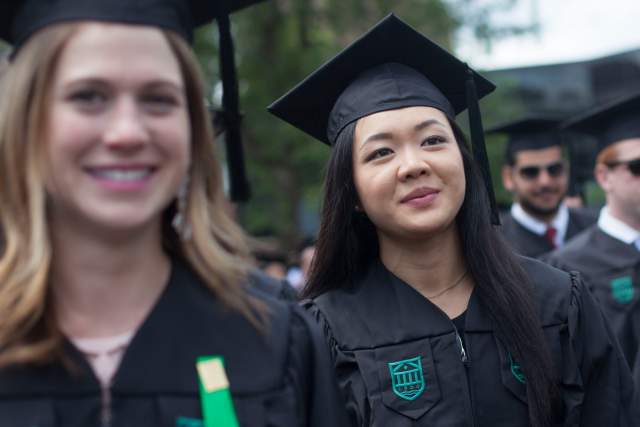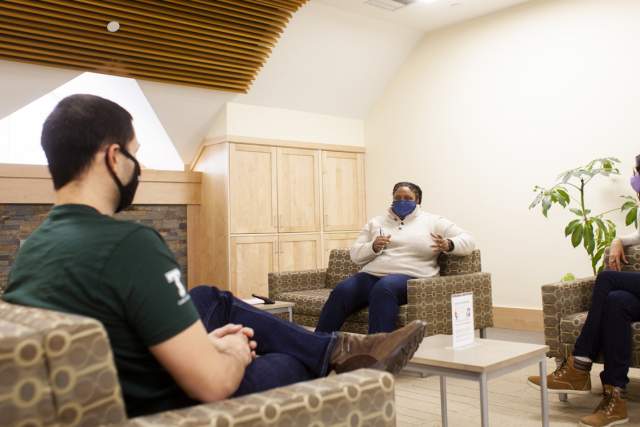Katherine Britt T’21 looks back at the fall of 2020, the start of her second year at Tuck, as a time of great “intersectional crises.” Rising racial tensions, a global health crisis, a U.S. election, visa restrictions, mental health challenges—the perfect storm.
“It was this critical moment in time,” says Britt. “There were these crises that were being felt internationally and nationally, community-wide and personally. And here I was, attending business school remotely, wondering how I could make an impact.”
In the midst of this historic moment, Britt and a group of fellow women students at Tuck began meeting weekly on Zoom to discuss how they themselves could drive change in a grassroots way—specifically, to bring more diversity and inclusion to classroom discussions and casework at Tuck. “We saw an opportunity to build something positive,” says Britt, “to leave this place better than when we found it.”
The students convened at an important and exciting time for change at Tuck. In August 2020, Dia Draper became the school’s first Assistant Dean for Diversity, Equity, and Inclusion, focused on driving organizational change and developing Tuck’s DEI strategic action plan. Draper and leaders at Tuck began immediate work on advancing DEI in Tuck’s curricular offerings, including an update to the first-year orientation program, Tuck Launch, to incorporate programming that prepares students to approach issues of diversity and reflect on the opportunity to make meaningful change. The session, “Race, Diversity and Your Life: Now What?” is led by Dean Matthew Slaughter and Professor Ella Bell Smith. And in recent years, Tuck has announced exciting milestones, including 50 years since the first woman graduate and the first Black graduate. The class of 2022 broke records in terms of gender and diversity: 49 percent of the Class of 2022 are women; the class represents 47 different countries by citizenship, the largest number for a single class in school history; and, among U.S. students, 32 percent of T’22s represent a U.S. minority.
The change in the air was palpable for Britt and the group as they brainstormed opportunities for the student body to partner with leadership and help advance DEI at Tuck. One major opportunity they observed: they felt the cases and course materials taught in the classroom were not representative of these milestones and the diverse and inclusive student community that Tuck strives for today, or of the evolving business world. Thus, the Next50 Initiative, inspired by the Next 50 years of student leaders at Tuck, was born. “We believe in Tuck’s mission to educate the next generation of wise, decisive leaders, and we see ourselves as tomorrow’s business leaders,” says Krishna Desai T’21, a founding fellow of Next50 who is heading to NBC Sports as a director of digital business strategy. “We feel our academic experience and case work should look like us and reflect the change going on in the world. Our own classes served as our inspiration.”
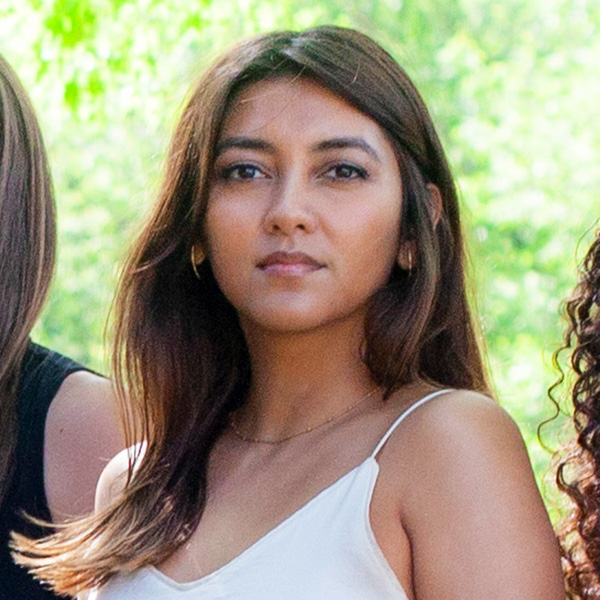
“We believe in Tuck’s mission to educate the next generation of wise, decisive leaders, and we see ourselves as tomorrow’s business leaders. We feel our academic experience and case work should look like us and reflect the change going on in the world.”
— Krishna Desai T’21, Next50 Founding Fellow; director of digital business strategy, NBC Sports
Over the Fall and Winter terms, a group of over 40 women at Tuck audited 160 cases across the entire core curriculum as well as popular electives. Partnering with faculty, they were able to access class materials, including all syllabi, for every course at Tuck. The audit focused on gender, race, intersectionality, seniority, and industry representation, and calculated mentions and featured leaders across their criteria. The final audit confirmed the students’ hypothesis, revealing a large discrepancy in the number of cases featuring women and minority protagonists in particular, and few women protagonists in senior leadership roles. A group of 11 founding fellows, a mix of first- and second-year female Tuck students, met with Assistant Dean Dia Draper to share their findings.
“The work of Next50 dovetailed so beautifully with my work in advancing DEI at Tuck. I was ready to partner and take it to the next level,” says Draper. “The number one driver of student engagement with DEI is the desire to discuss how intersectional issues of culture and identity impact leadership. Who has power and authority? In my 20 years at Tuck and Dartmouth, the greatest catalyst for change has always been the needs of the students.”
By Winter Term, the Next50 fellows and Draper had presented their findings to the remainder of the Dean’s Office, including Joe Hall, Senior Associate Dean for Teaching and Learning, and Brian Tomlin, Senior Associate Dean for Faculty and Research, and received enthusiastic support for their efforts. Tomlin and Hall quickly became faculty champions of the Initiative, bringing in additional faculty voices for their input and guidance, and phase two of the project began: With the hypothesis confirmed, how could the Initiative help inspire changes in the classroom?
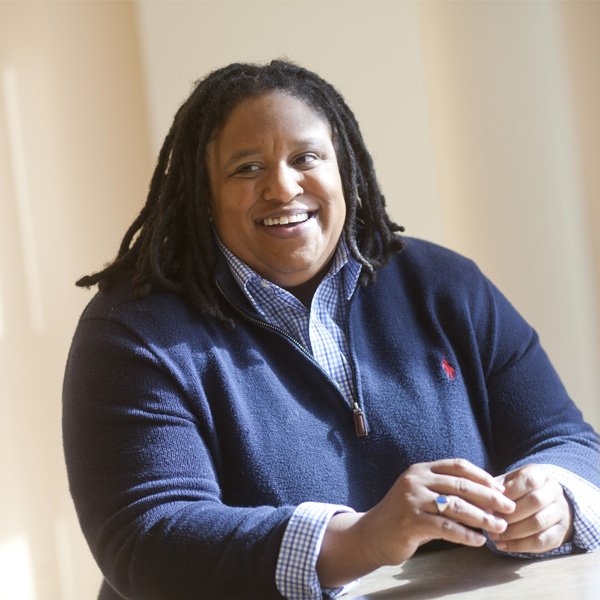
“The number one driver of student engagement with DEI is the desire to discuss how intersectional issues of culture and identity impact leadership. Who has power and authority? In my 20 years at Tuck and Dartmouth, the greatest catalyst for change has always been the needs of the students.”
— Dia Draper, Tuck Assistant Dean for Diversity, Equity, and Inclusion
Throughout the Spring Term, the Next50 fellows began working with faculty to identify immediate opportunities in the curriculum. Deans Tomlin and Hall, for example, invited the fellows to help them create a new and more diverse case for the core Operations course. Revising existing casework, creating new casework, and designing a refined production and approval process for cases—cases that students could see themselves in—would require many hands. For the “right cast of characters,” as Desai says, the fellows looked to Tuck’s own accomplished alumni network, identifying a list of alumni leaders who would offer learning opportunities, diverse perspectives, and inspire students in the classroom. Their hope is that alumni continue to act as strategic partners for Next50 in the days ahead. And for new cases, the fellows envision a future where students are involved in, and even driving, case creation at the very beginning stages.
This vision and many other goals, which were codesigned by the first and second year Next50 leaders, aimed to be both ambitious and sustainable, culminating in a five-year plan that the T’22s will carry forward to help drive the initiative into the next stages of implementation.
“We want Tuck to be the leader in this area of business education by serving as an example of change and inspiring other business schools to diversify their casework and classroom experiences,” says Tabitha Bennett T’22, one of the three incoming Next50 co-chairs to succeed Britt. Part of the five-year plan the students have laid out is to reach 25 percent of cases featuring diverse protagonists by 2023, and 50 percent by 2026.
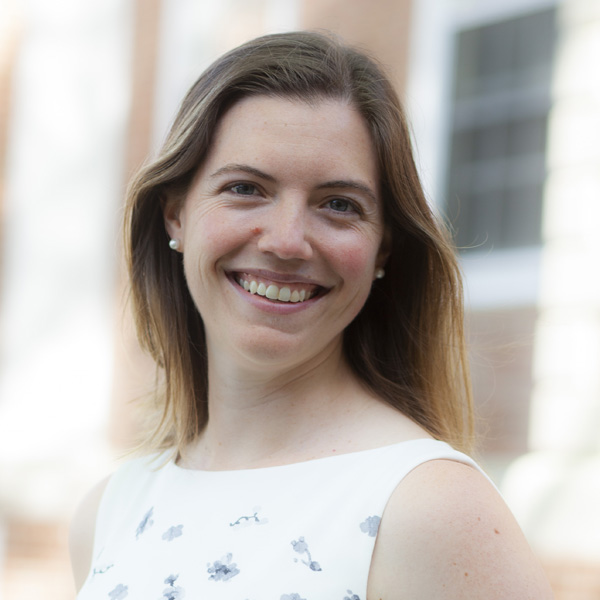
“Next50 is just one piece of an ecosystem of change that is student-driven. It really feels like planting a seedling, and you don’t know how big that tree is going to be in 5, 10, 15 years. What matters now is how you make sure it can and will grow.”
— Katherine Britt T’21, Next50 Founding Fellow; senior manager, HubSpot
“Next year is really about doing the work to reach those milestones,” says Bennett. “This includes continued faculty partnership and greater student engagement, including collaborating closely with student affinity groups on campus. We want to ensure we’re representing as many voices as we can.”
Another goal that was articulated by the Next50 fellows is to launch a DEI-focused case competition in the fall, which has already secured funding from alumni. Win D’72 T’73 and Christie Neuger recently committed $250,000 to fund a national case competition at Tuck focused on creating and disseminating high-quality case studies that advance issues of diversity, equity, and inclusion. The Neugers also pledged an additional $1 million to support faculty teaching and research on DEI topics.
As Britt, Desai, and the other T’21s head to their full-time roles after Tuck, they leave with a sense of pride for what they’ve accomplished, and hope for the future as the next wave of students at Tuck drive the Initiative into the future.
“Something I learned through this experience is that Tuck is a place for builders. If you want to build something, to drive change, you can do that here,” says Britt, now a senior manager at HubSpot. “Next50 is just one piece of an ecosystem of change that is student-driven. It really feels like planting a seedling, and you don’t know how big that tree is going to be in 5, 10, 15 years. What matters now is how you make sure it can and will grow.”
What does Next50 mean to you?
The Next50 founding fellows weigh in.
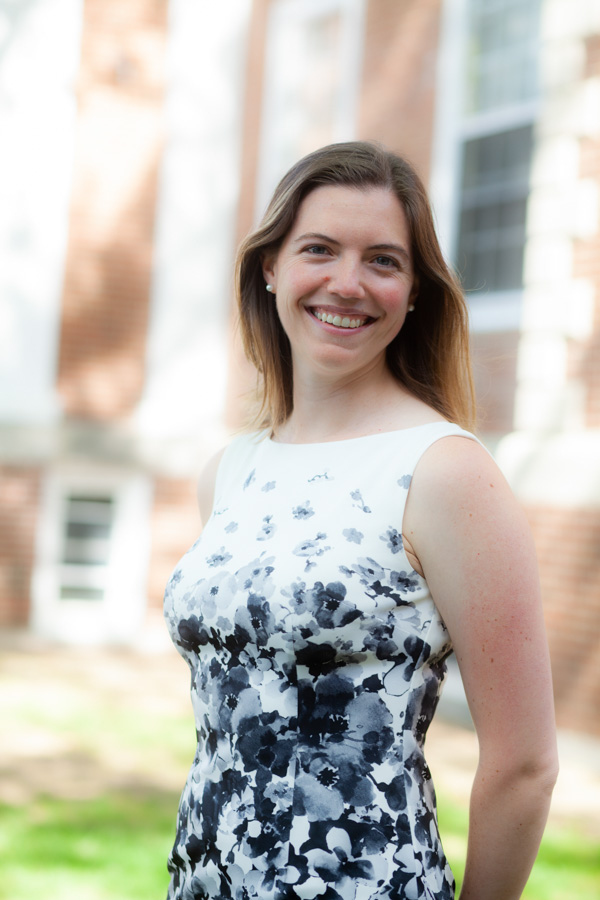
Katherine Britt T’21, Former Chair
"Next50 is imagining a world where our courses and speakers are not only representative of our inclusive student body, but also of the evolving business world and the diverse leaders we will be led by, and one day be. I think big. There is no reason we can’t be a leader in delivering the most vibrant and inclusive classroom experience. With our size and community connections, we have the means to do it right. I’m hopeful that this has effects outside of Tuck. I’m hopeful that executives, administrators, alumni, etc. are excited and encouraged to make changes, wherever they are."
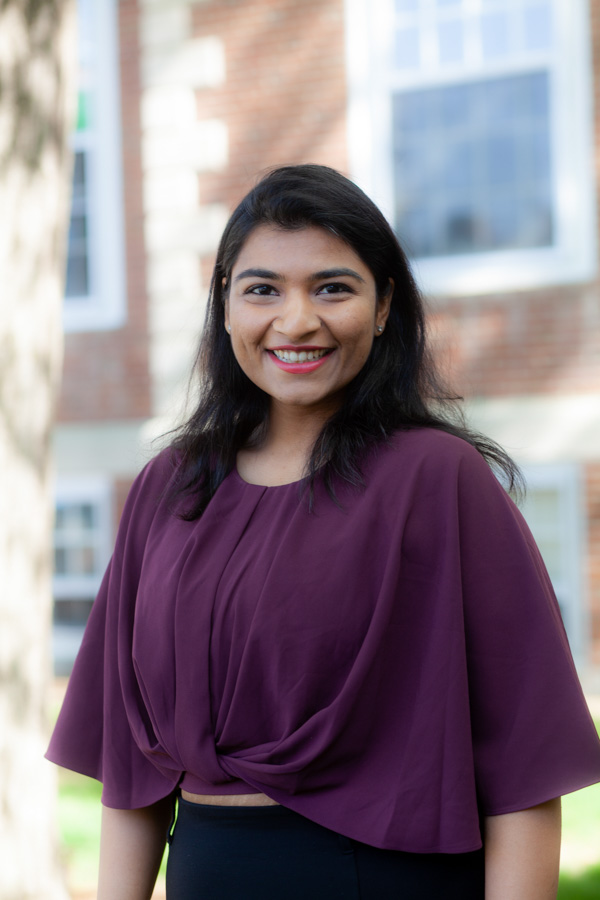
Jhanvi Jagad T’21
"To connect with women and work towards the upliftment of both myself and other women around me—This was the reason I wanted to be involved with Next50. I truly believe Next50 is just the beginning of a gender equal era at Tuck. I wish my fellow Next50ers the best in driving this forward and pushing for its core—to stand up for women, diversity, and uplift everyone around them."
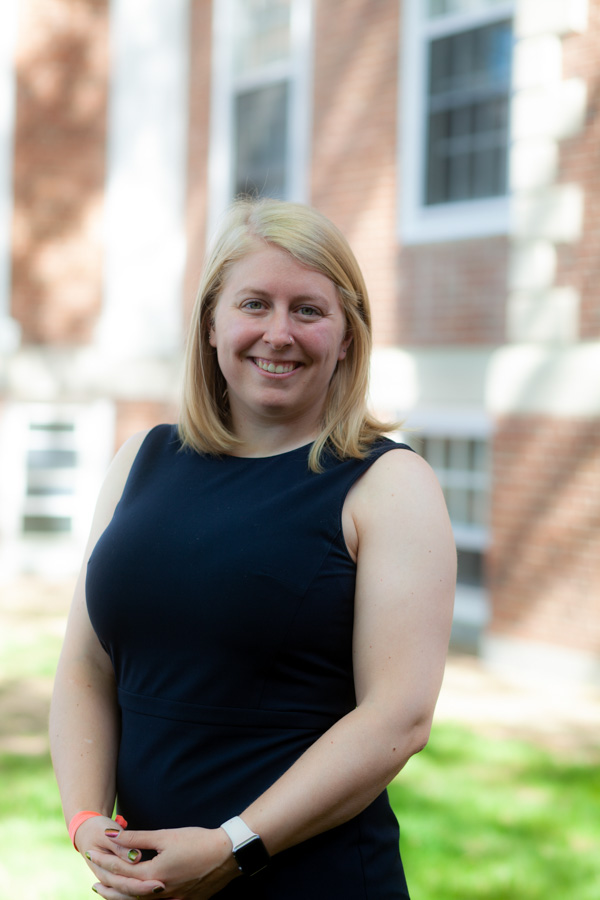
Anna Vaughan T’21
"To me, Next50 is a step towards a Tuck curriculum that better mirrors the students who study it. We had the opportunity this year to really reflect on the lessons we were learning and how those lessons shaped our ideas about the kind of leaders we would like to be after leaving Tuck. In that spirit, and in noticing the gap that exists between coursework and the student population, we decided to take action to ensure that the classes that follow us have a core in which they can see themselves. This effort will live long past our time at Tuck and we hope it will be a continuous improvement exercise; we have created a starting point from which people can progress, grow, and continue to learn well into the future."
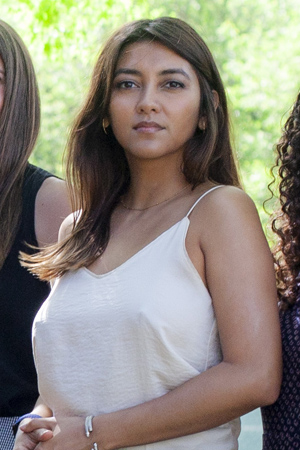
Krishna Desai T'21
"While Next50 is specific to Tuck’s history, we hope this serves as inspiration for other programs as they investigate how to create more opportunities for representation in higher education. The generous alumni gift, collaboration with Tuck faculty and administration, and overall transparency are critical to the long term success of this program. I am inspired by the incredibly powerful and successful alumni I have met throughout my time here, so this is about creating space for those stories—stories that are better representations of the transformation taking place in today’s world. I look forward to celebrating other institutions’ agents of change just as I celebrate the Founding Fellows and the future leaders of this program."
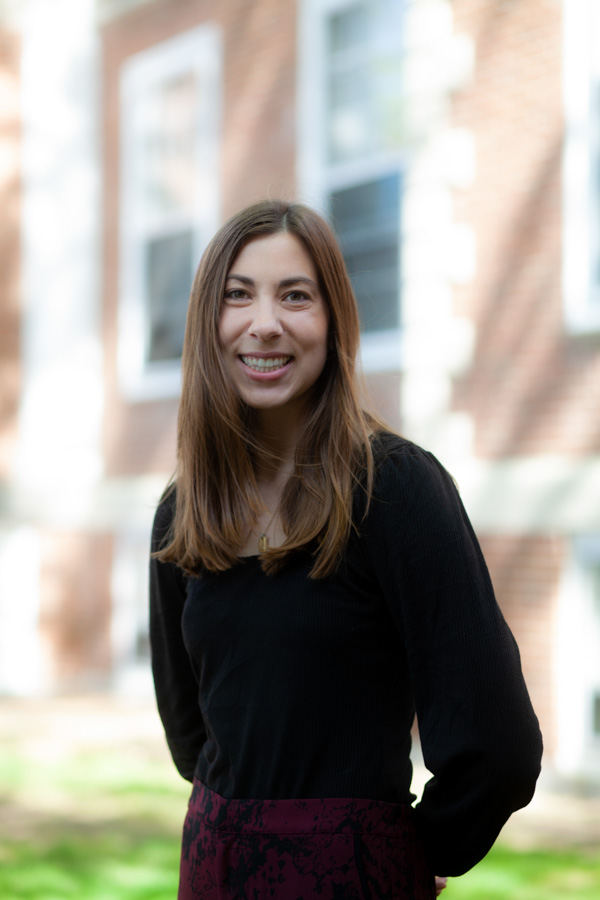
Monica McGreal T’21
"Next50 is about aligning what we study in class with the experiences we have in our daily lives at Tuck and in the broader community. It is about creating an environment in which every Tuckie can see themselves in the coursework we study. It is about arming each and every Tuckie with the confidence to lead in our diverse world in an inclusive way. Next50 aims to make Tuck a leader in diversity and inclusion—both in academics and in practice. To me, Next50 is about consistently making progress toward a more inclusive world."
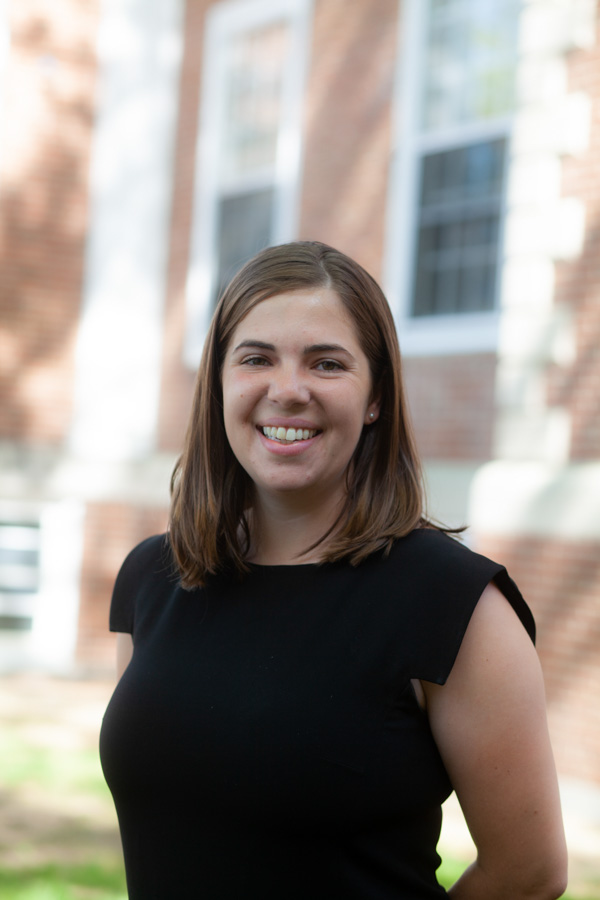
Bridget Morton T’21
"In celebrating 50 years of women at Tuck, we have an opportunity to nurture a culture in which Tuckies learn from a diverse set of voices in their classmates, academic experiences, and co-curricular events. Like the best of Tuck, the initiative grew from students’ desires to develop their wise leadership, and over the course of the year developed into a collaboration with the faculty and deanery. Our work occurred with the backdrop of a global pandemic and of racist and violent events across the nation which only strengthened our resolve to highlight diverse voices.
Next50 represents the hopes of the 2021 and 2022 Classes that the entire Tuck experience will reflect increased diversity of thought and leadership to empower wise leaders of the future. I could not be more excited or more proud to see where this group goes next."
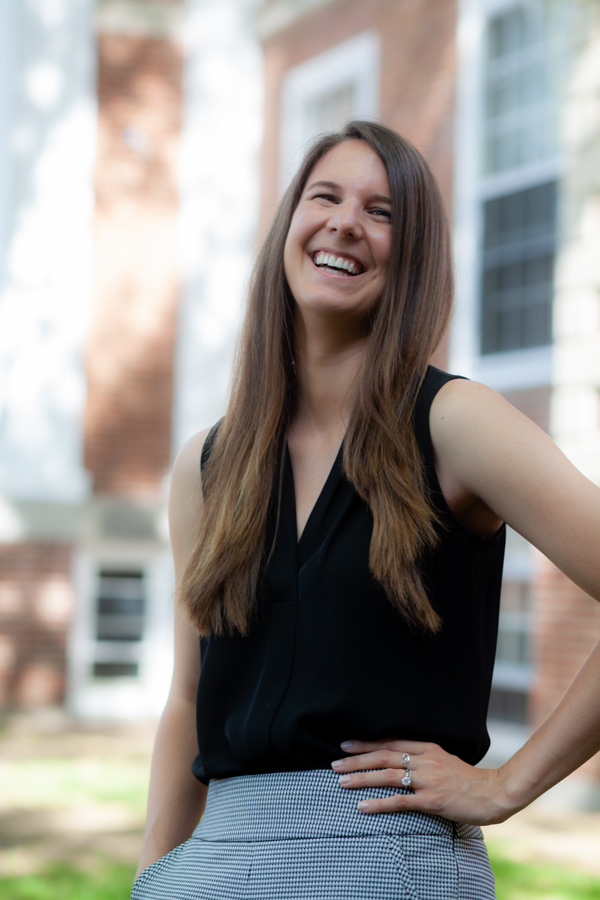
Lindsay Cox T’22, Co-Chair
"The work we’re doing is bigger than Tuck. MBA programs everywhere are in dire need of more diverse representation in the cases and materials taught in their classrooms. We want Tuck to become a leader in helping all MBA students see themselves in the stories and business leaders they study and aspire to. We imagine the day when women, BIPOC, and international MBA students will no longer spend day after day studying the accomplishments of white, American men; and the day when the next generation of business leaders is exposed regularly to the ideas, accomplishments, and courage of those different from them and from all backgrounds and walks of life. It is critical that everyone can see themselves reflected in the MBA academic experience and can feel that there is a world of possibility for what they can do and become. We know it matters. I’m proud to be part of a team who is helping us get there."
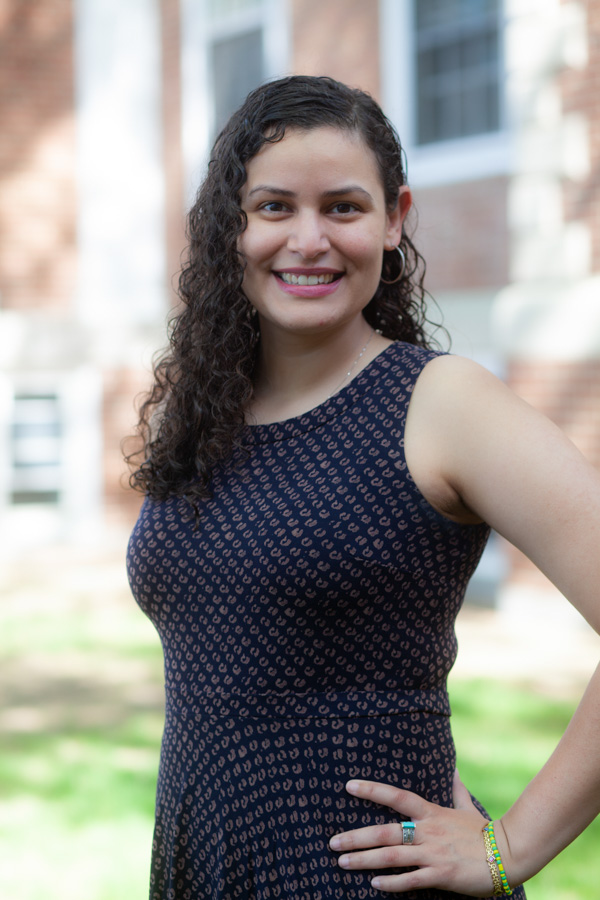
Gissell Castellon T’22, Co-Chair
"Next50 means progress to me. It means that someone like me will get to read a case where they see themselves represented and relate a little bit more to the person or character. There were too many times this year where I read cases that had the same protagonist—a white male. I look forward to the day where this is no longer the norm. Today, Tuck is more diverse than it was in the past—with my class comprising of 49% women and 22% US minorities. Next50 is the work that needs to be done to change perspectives and broaden our world views."
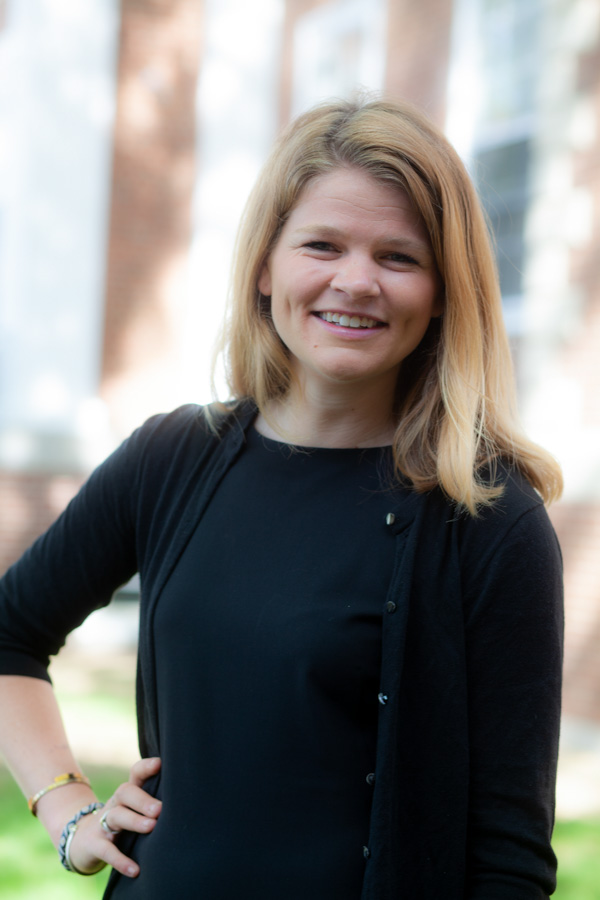
Caroline Carey T’22
"Next50’s work is not to simply check a box that more diverse case protagonists are taught in the Tuck curriculum. It is to facilitate more rich, meaningful discussions on how race, ethnicity, and gender play a role in the workplace. I am motivated by how our work will create a more inclusive and personal classroom experience for every Tuckie, and how that experience will prepare Tuck graduates to create more inclusive work environments as they go forth and lead.
I am so proud of what Next50 has accomplished in a short period of time. Our work has already sparked discussions about what is being taught and the impact that diversity in the curriculum can have on the Tuck experience. I have been so encouraged by the partnership that Tuck faculty and staff have exhibited this year. People know it’s time for Tuck to take the lead in changing the landscape of the leaders we study. I feel fortunate to be a part of the team that is helping to facilitate this change."
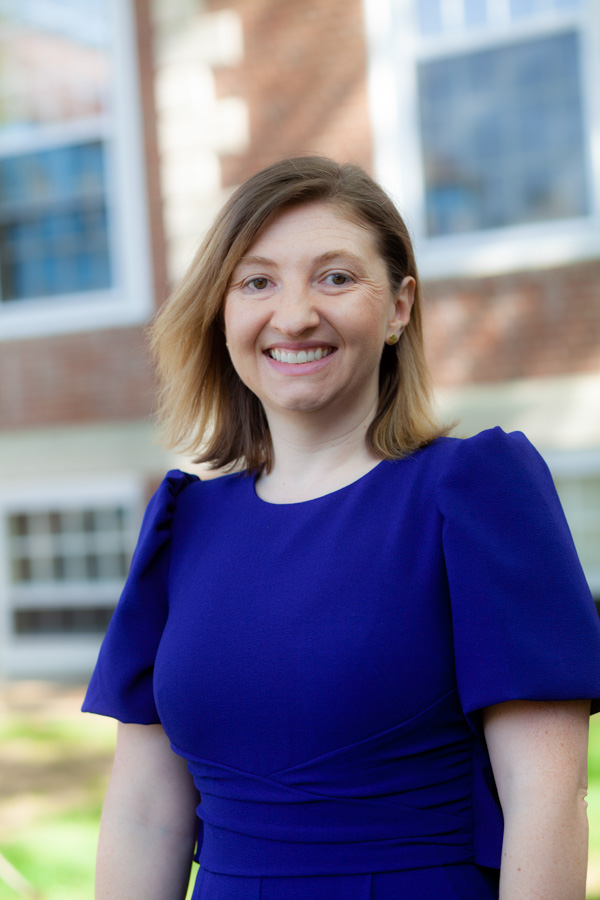
Tabitha Bennett T’22, Co-Chair
"Next50 is about students recognizing the value of learning from different backgrounds and experiences and leading the change we want to see in our academic experience. We learn from our classmates every day who bring gender, racial, ethnic, and international diversity to Tuck. The voices and perspectives in cases and examples taught in the classroom should reflect this diversity. More women, BIPOC and international representation exposes us to different types of leadership and success stories, it helps us to picture ourselves as business leaders and work with people from different backgrounds in our careers. Tuck can be a model for educating wise, decisive, and diverse leaders and preparing students for a world more diverse and connected than ever before."
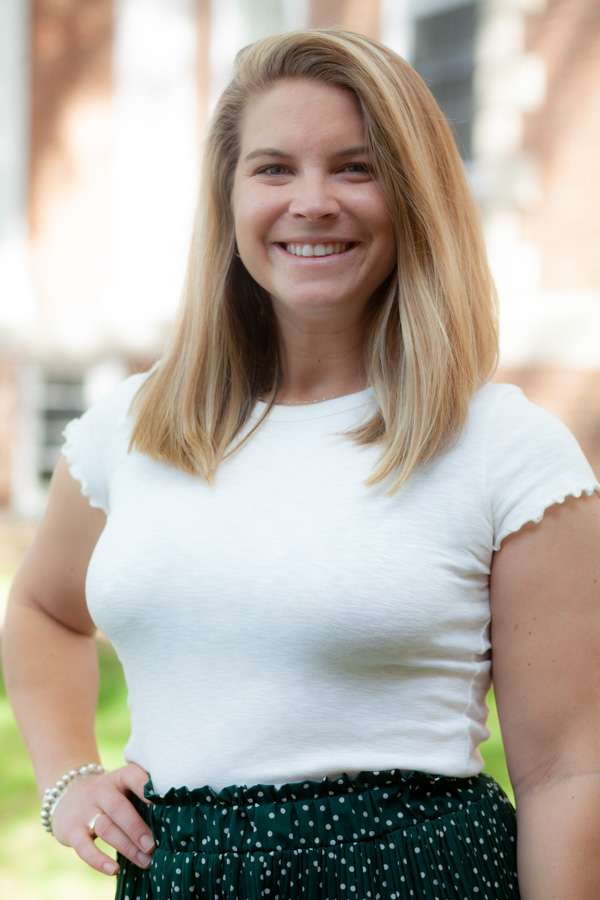
Emily Blau T’22
"Next50 is an imperative. It is a voice. It is a collective. Next50 represents the future of Tuck. As a part of this Next50 initiative, I hope to inspire my peers, my professors, the Tuck administrators, and fellow MBAs around the country and globe. I hope that Tuck women set the tone and the example that all voices must be celebrated and elevated in every MBA classroom. When I was an elementary school teacher, I saw first-hand how much deeper my students connected with material when they saw themselves in story. Diversifying the case compilation perpetuates diversity of thought, words, and actions long after class ends. By actively working to diversify the portfolio of cases we require Tuck students to read, we are increasing the opportunities for Tuck graduates to engage in self-aware, thoughtful, and courageous conversations with others."
